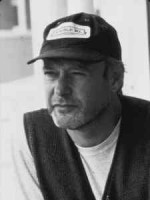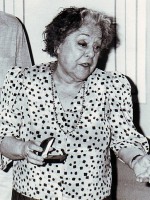Victor Erice is a Director and Scriptwriter Espagnol born on 30 june 1940 at Karrantza (Espagne)
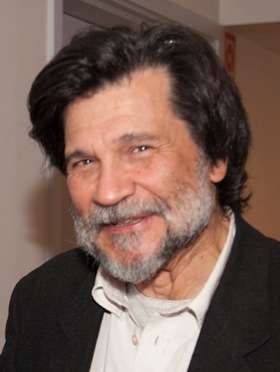
Víctor Erice Aras ([eˈɾiθe]; born 30 June 1940) is a Spanish film director.
He studied law, political science, and economics at the University of Madrid. He also attended the Escuela Oficial de Cinematografia in 1963 to study film direction. He wrote film criticism and reviews for the Spanish film journal Nuestro Cine, and made a series of short films before making his first feature film, The Spirit of the Beehive (1973), a critical portrait of the rural Spain of the 1940s.
Ten years later, Erice wrote and directed The South (1982), based on a story from Adelaida García Morales, considered a masterpiece although the producer Elías Querejeta only allowed him to film the first two-thirds of the story. His third movie, The Quince Tree Sun (1992) is a documentary about painter Antonio López García. The film won the Jury Prize and the FIPRESCI Prize at the 1992 Cannes Film Festival.
He was a member of the jury at the 2010 Cannes Film Festival in May.
Il est admis à la Escuela Oficial de Cinematografía (EOC), où il obtient le Diplôme de Réalisateur. Il écrit des articles, des critiques pour les revues Nuestro Cine et Cuadernos de Arte y pensamiento. Il travaillera d'abord comme scénariste, puis comme réalisateur de films publicitaires.
C'est en 1969 qu'il débute à la réalisation de cinéma avec l'un des trois épisodes de Los desafíos. Il tourne en 1973 son premier long-métrage, El espíritu de la colmena, qui recevra la plus haute distinction du Festival International de Cinéma de San Sebastian, la Coquille d'Or, et lui permettra d'accéder à une reconnaissance publique et critique notable.
En 1983, il dirige El Sur, d'après un roman d'Adelaida García Morales, son épouse d'alors. C'est une œuvre dans la lignée des thématiques déjà abordée dans El Espiritu de la colmena : l'enfance et l'accès à l'individuation dans les sociétés en crise, l'expérience du cinéma, les relations au père, l'exil... Victor Erice dira de ce deuxième film qu'il reste inachevé : un deuxième volet était en effet prévu, qui n'a pu être produit : le producteur Elías Querejeta ne parviendra pas à convaincre le principal financeur du projet.
Encore une décennie plus tard (1992), Victor Erice réalise El Sol del membrillo, avec la collaboration du peintre Antonio Lopez-Garcia,. Le film sera présenté au Festival de Cannes, où il obtient le Premier Prix du Jury et celui de la Critique Internationale (FIPRESCI).
Dès 1995, il entreprend d'adapter la nouvelle de Juan Marsé, El Embrujo de Shangai et engage la préparation du tournage. Mais le producteur ne suit pas, et le projet est abandonné définitivement en mars 1999. Le scénario La promesa de Shangai est cependant édité en 2001.
En 2002, à la demande de Wim Wenders, à l'origine du projet, il tournera un épisode du film collectif Ten Minutes older : the Trumpet, qu'il intitule Alumbramiento.
En 2005, le Centre de Cultura Contemporània de Barcelona lui commande, dans le contexte de l'exposition : Erice / Kiarostami : correspondances, une série de lettres filmées entre le réalisateur iranien et lui-même. Cette série s'intitule Cartas a Abbas Kiarostami, et sera présentée à l'exposition de Barcelone, reprise en 2008 au Centre Georges Pompidou à Beaubourg (Paris) et finalement publiée dans le catalogue de l'exposition.
C'est dans le même contexte qu'il écrit et réalise avec de modestes moyens, à la demande d'Alain Bergala et de Jordi Ballo, commissaires de l'exposition de 2005 et 2008, le film La Morte rouge, où il évoque la première expérience de cinéma d'un enfant de 6 ans (lui-même) à San-Sebastian, dans l'Espagne déchirée et franquiste du début de la dictature (1946).
Simultanément, il réalise une installation - dans laquelle la lumière et le son jouent un rôle primordial - destinée aux musées, à partir de plusieurs tableaux d'Antonio López, sous le titre «Fragor del mundo, silencio de la pintura».
Depuis 2010, il travaille, de façon discontinue, sur une série documentaire intitulée Memoria y Sueño, évoquant les lieux de tournage des grands films de l'histoire du cinéma.
Au Festival de Cannes en 2010, il fait partie du jury présidé par Tim Burton qui remet la Palme d'or à Apichatpong Weerasethakul pour Lung Boonmee raluek chat.
Source : Wikidata
Victor Erice

He studied law, political science, and economics at the University of Madrid. He also attended the Escuela Oficial de Cinematografia in 1963 to study film direction. He wrote film criticism and reviews for the Spanish film journal Nuestro Cine, and made a series of short films before making his first feature film, The Spirit of the Beehive (1973), a critical portrait of the rural Spain of the 1940s.
Ten years later, Erice wrote and directed The South (1982), based on a story from Adelaida García Morales, considered a masterpiece although the producer Elías Querejeta only allowed him to film the first two-thirds of the story. His third movie, The Quince Tree Sun (1992) is a documentary about painter Antonio López García. The film won the Jury Prize and the FIPRESCI Prize at the 1992 Cannes Film Festival.
He was a member of the jury at the 2010 Cannes Film Festival in May.
Biography
Victor Erice étudie le droit et les sciences politiques à l'université de Madrid,Il est admis à la Escuela Oficial de Cinematografía (EOC), où il obtient le Diplôme de Réalisateur. Il écrit des articles, des critiques pour les revues Nuestro Cine et Cuadernos de Arte y pensamiento. Il travaillera d'abord comme scénariste, puis comme réalisateur de films publicitaires.
C'est en 1969 qu'il débute à la réalisation de cinéma avec l'un des trois épisodes de Los desafíos. Il tourne en 1973 son premier long-métrage, El espíritu de la colmena, qui recevra la plus haute distinction du Festival International de Cinéma de San Sebastian, la Coquille d'Or, et lui permettra d'accéder à une reconnaissance publique et critique notable.
En 1983, il dirige El Sur, d'après un roman d'Adelaida García Morales, son épouse d'alors. C'est une œuvre dans la lignée des thématiques déjà abordée dans El Espiritu de la colmena : l'enfance et l'accès à l'individuation dans les sociétés en crise, l'expérience du cinéma, les relations au père, l'exil... Victor Erice dira de ce deuxième film qu'il reste inachevé : un deuxième volet était en effet prévu, qui n'a pu être produit : le producteur Elías Querejeta ne parviendra pas à convaincre le principal financeur du projet.
Encore une décennie plus tard (1992), Victor Erice réalise El Sol del membrillo, avec la collaboration du peintre Antonio Lopez-Garcia,. Le film sera présenté au Festival de Cannes, où il obtient le Premier Prix du Jury et celui de la Critique Internationale (FIPRESCI).
Dès 1995, il entreprend d'adapter la nouvelle de Juan Marsé, El Embrujo de Shangai et engage la préparation du tournage. Mais le producteur ne suit pas, et le projet est abandonné définitivement en mars 1999. Le scénario La promesa de Shangai est cependant édité en 2001.
En 2002, à la demande de Wim Wenders, à l'origine du projet, il tournera un épisode du film collectif Ten Minutes older : the Trumpet, qu'il intitule Alumbramiento.
En 2005, le Centre de Cultura Contemporània de Barcelona lui commande, dans le contexte de l'exposition : Erice / Kiarostami : correspondances, une série de lettres filmées entre le réalisateur iranien et lui-même. Cette série s'intitule Cartas a Abbas Kiarostami, et sera présentée à l'exposition de Barcelone, reprise en 2008 au Centre Georges Pompidou à Beaubourg (Paris) et finalement publiée dans le catalogue de l'exposition.
C'est dans le même contexte qu'il écrit et réalise avec de modestes moyens, à la demande d'Alain Bergala et de Jordi Ballo, commissaires de l'exposition de 2005 et 2008, le film La Morte rouge, où il évoque la première expérience de cinéma d'un enfant de 6 ans (lui-même) à San-Sebastian, dans l'Espagne déchirée et franquiste du début de la dictature (1946).
Simultanément, il réalise une installation - dans laquelle la lumière et le son jouent un rôle primordial - destinée aux musées, à partir de plusieurs tableaux d'Antonio López, sous le titre «Fragor del mundo, silencio de la pintura».
Depuis 2010, il travaille, de façon discontinue, sur une série documentaire intitulée Memoria y Sueño, évoquant les lieux de tournage des grands films de l'histoire du cinéma.
Au Festival de Cannes en 2010, il fait partie du jury présidé par Tim Burton qui remet la Palme d'or à Apichatpong Weerasethakul pour Lung Boonmee raluek chat.
Usually with
Filmography of Victor Erice (4 films)
Director
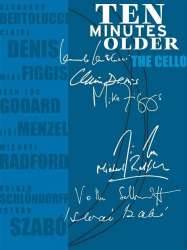
Ten Minutes Older: The Cello (2002)
Directed by Werner Herzog, Jim Jarmusch, Mike Figgis, Wim Wenders, Chen Kaige, Volker Schlöndorff, Bernardo Bertolucci, Jean-Luc Godard, István Szabó, Claire Denis, Spike Lee, Victor Erice, Aki Kaurismäki, Jiří Menzel, Michael Radford
Genres Drama, Science fiction, Musical theatre, Romance
Actors Valeria Bruni Tedeschi, Dominic West, Ildikó Bánsági, Alex Descas, Bibiana Beglau, Irm Hermann
Rating65%





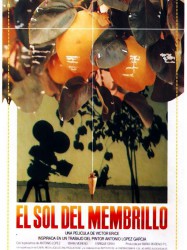
Dream of Light (1992)
, 2h18Directed by Victor Erice
Genres Drama, Documentary
Themes Peinture, Documentary films about the visual arts, Documentaire sur une personnalité
Rating76%





The film begins by showing Antonio López García as a very meticulous painter. He drives in pegs to mark his stance, hangs a weight and uses strings to determine the symmetry and center of his painting. His first attempt starts out peacefully but he soon encounters problems due to the weather and the size of his canvas. As García and a friend discuss Michelangelo's The Last Judgement, painted when Michelangelo was in his 60s, which García is fast approaching, the film's subject takes shape as the relationship between the artist's work and his own mortality. García's future attempts are much more rushed and frantic as he struggles to compete with the weather, the fleeting sun and the rotting and weighed down fruit in maintaining his vision.

El Sur (1983)
, 1h33Directed by Victor Erice
Origin Espagne
Genres Drama, Romance
Actors Omero Antonutti, Icíar Bollaín, Aurore Clément, Lola Cardona, Rafaela Aparicio, Germaine Montero
Rating77%





This film tells the story of a little girl (Sonsoles Aranguren) living somewhere in the north of Spain and fascinated by the secrets of the south seemingly buried in the traits of her father (Omero Antonutti). In her childhood, Estrella's father is a mysterious world. Growing up, she finds out that he once had a sweetheart (Aurore Clément), and that he's still in love with her.
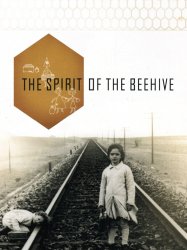
The Spirit of the Beehive (1973)
, 1h37Directed by Victor Erice
Origin Espagne
Genres Drama, Comedy-drama, Fantasy
Themes Films about children, Frankenstein films, Political films
Actors Fernando Fernán Gómez, Ana Torrent, Teresa Gimpera Flaquer, Laly Soldevila, Miguel Picazo
Rating77%





Six-year-old Ana is a shy girl who lives in the manor house in an isolated Spanish village on the Castilian plateau with her parents Fernando and Teresa and her older sister, Isabel. The year is 1940, and the civil war has just ended with the Francoist victory over the Republican forces. Her aging father spends most of his time absorbed in tending to and writing about his beehives; her much younger mother is caught up in daydreams about a distant lover, to whom she writes letters. The entire family is only ever seen together in a single shot towards the end of the movie, there is no discussion. Ana's closest companion is Isabel, who loves her but cannot resist playing on her little sister's gullibility. Teresa writes to her past lover while she seems to stare out the window at the old house where Ana will find the republican soldier: "Little but the walls remain of the house you once knew, I often wonder what became of everything we had there." This supposes the house has a history for her, and implies the escaped republican soldier who will run straight to this now empty and crumbling house and hide in it may have been her lover.
Scriptwriter

Dream of Light (1992)
, 2h18Directed by Victor Erice
Genres Drama, Documentary
Themes Peinture, Documentary films about the visual arts, Documentaire sur une personnalité
Roles Writer
Rating76%





The film begins by showing Antonio López García as a very meticulous painter. He drives in pegs to mark his stance, hangs a weight and uses strings to determine the symmetry and center of his painting. His first attempt starts out peacefully but he soon encounters problems due to the weather and the size of his canvas. As García and a friend discuss Michelangelo's The Last Judgement, painted when Michelangelo was in his 60s, which García is fast approaching, the film's subject takes shape as the relationship between the artist's work and his own mortality. García's future attempts are much more rushed and frantic as he struggles to compete with the weather, the fleeting sun and the rotting and weighed down fruit in maintaining his vision.

El Sur (1983)
, 1h33Directed by Victor Erice
Origin Espagne
Genres Drama, Romance
Actors Omero Antonutti, Icíar Bollaín, Aurore Clément, Lola Cardona, Rafaela Aparicio, Germaine Montero
Rating77%





This film tells the story of a little girl (Sonsoles Aranguren) living somewhere in the north of Spain and fascinated by the secrets of the south seemingly buried in the traits of her father (Omero Antonutti). In her childhood, Estrella's father is a mysterious world. Growing up, she finds out that he once had a sweetheart (Aurore Clément), and that he's still in love with her.

The Spirit of the Beehive (1973)
, 1h37Directed by Victor Erice
Origin Espagne
Genres Drama, Comedy-drama, Fantasy
Themes Films about children, Frankenstein films, Political films
Actors Fernando Fernán Gómez, Ana Torrent, Teresa Gimpera Flaquer, Laly Soldevila, Miguel Picazo
Rating77%





Six-year-old Ana is a shy girl who lives in the manor house in an isolated Spanish village on the Castilian plateau with her parents Fernando and Teresa and her older sister, Isabel. The year is 1940, and the civil war has just ended with the Francoist victory over the Republican forces. Her aging father spends most of his time absorbed in tending to and writing about his beehives; her much younger mother is caught up in daydreams about a distant lover, to whom she writes letters. The entire family is only ever seen together in a single shot towards the end of the movie, there is no discussion. Ana's closest companion is Isabel, who loves her but cannot resist playing on her little sister's gullibility. Teresa writes to her past lover while she seems to stare out the window at the old house where Ana will find the republican soldier: "Little but the walls remain of the house you once knew, I often wonder what became of everything we had there." This supposes the house has a history for her, and implies the escaped republican soldier who will run straight to this now empty and crumbling house and hide in it may have been her lover.
 Connection
Connection



